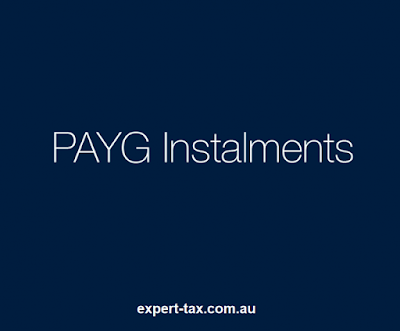PAYG INSTALMENTS

What is a PAYG Instalment? A PAYG instalment is an estimate only made by the Australian Taxation Office based on your previous years’ assessment and is essentially a prepayment of the tax liability. The ATO will also determine how frequently you are required to pay these instalment amounts. How do PAYG instalments affect my Annual Tax Return? Upon lodgement of your Tax Return , the instalment paid will be credited against your actual tax liability to determine if additional tax is payable or a refund due. Your PAYG instalment is greater than the actual tax liability After finalising the Annual Tax Return, if it is noted that the actual tax liability is less than the PAYG instalment amount already paid to the ATO for the Financial Year then upon lodgement of the Tax Return, you will be entitled to a refund from the ATO. PAYG instalment is less than the actual tax liability If the actual tax liability is greater than the PAYG instalment amount...






